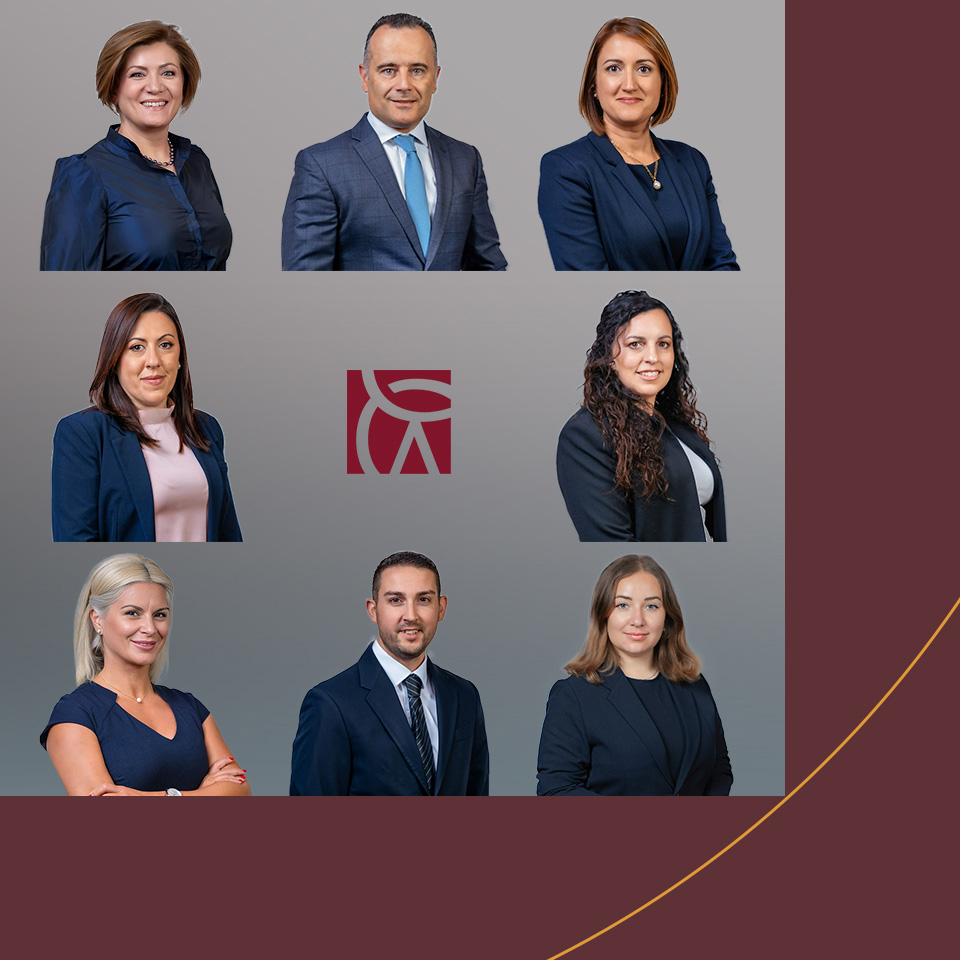Improving the cash flow position of shareholders of Maltese companies
Recently, Malta has published the Consolidated Group (Income Tax) Rules, 2019. These new rules aim to allow consolidated tax reporting whilst simplifying the income tax calculation. Through the new tax consolidation rules a significant cash flow advantage is established, as opposed to the current Malta tax refund system.
On 31 May 2019 Malta published Legal Notice 110 of 2019 entitled Consolidated Group (Income Tax) Rules, 2019 (the “Notice”).
The new rules simplify the income tax calculation and allow for consolidated tax reporting. The cash flow position of Malta companies and their shareholders may be improved where these are entitled to tax refunds.
Under the new rules, a Malta company which elects to be treated as part of a fiscal unit will not obliged to pay the full 35% income tax which subsequently could be claimed back in full or in part by its shareholder/s. Instead, the tax refund due to shareholders shall be taken into account when calculating the final tax liability of the consolidated fiscal unit and shall be paid by such unit’s principal taxpayer. Furthermore, under the Notice the attractive consolidated tax rate will be applied even if the members of the fiscal unit do not distribute the dividends out (as is required now to avail of the tax refund).
The application of these rules is optional and possible from year of assessment 2020 onward.
Fiscal Consolidation
The Notice allows a group of eligible companies to form a ‘fiscal unit’ through election made on a prescribed form. The election may be revoked in subsequent years.
A fiscal unit comprises a ‘principal taxpayer’, i.e. a parent company, and its chosen direct and indirect subsidiaries (including entities not resident in Malta) that, in the year prior to the year of assessment in which an election to form a fiscal unit is made, meet any two of the following conditions:
a) the parent company holds at least 95% of the voting rights in the subsidiary;
b) the parent company is beneficially entitled to at least 95% of any profits available for distribution to the ordinary shareholders of the subsidiary;
c) the parent company would be beneficially entitled to at least 95% of any assets of the subsidiary available for distribution to its ordinary shareholders on a winding up.
Subsidiaries meeting the above mentioned conditions and chosen to be included in a fiscal unit are referred to as ‘transparent subsidiaries’ of the principal taxpayer. Under the Notice, a beneficiary of a foundation or trust shall qualify as a principal taxpayer if such beneficiary has a vested right to at least 95% of the attributable income and capital of the trust or foundation.
Get in touch to find out more
The election to become principal taxpayers may be made by Malta resident companies, Malta branches of foreign companies that carry out activities in Malta, as well as Malta trusts or foundations if they are treated as companies under the Income Tax Act (the ‘ITA’). The election cannot be made by foundations that elected to be treated as trusts for Malta tax purposes, securitisation vehicles or finance leasing companies. No entity can form part of more than one fiscal unit.
The Notice also allows for creation of fiscal units within cell companies. They may comprise any cell or the core, i.e. that part of a cell company in which non-cellular assets are held, provided they are 95% owned by the same person (as explained above with respect to companies). In such scenario the common owner must specify which of the cells or the core shall constitute the parent company and which the transparent subsidiaries.
The Notice requires that on creation and throughout the existence of the fiscal unit all entities comprising such unit have their accounting periods beginning and ending on the same dates. Moreover, where not all equity shares in a transparent subsidiary are owned (directly or indirectly) by the parent company, the election to create a fiscal unit shall require the approval of the holders of remaining equity shares.
When a company joins a fiscal unit, the balance of any item allowed to be carried forward and the balance of any profits allocated to the tax accounts, excluding the untaxed account, of such entity at the end of the preceding basis year, shall be considered going forward to be a balance of the principal taxpayer. If not all the equity shares in a transparent subsidiary are owned (directly or indirectly) by the parent company, such aggregation shall require approval of the remaining shareholders.
A transparent subsidiary will no longer form part of a fiscal unit if it no longer remains a 95% (direct or indirect) subsidiary of the principal taxpayer or no longer has its accounting period beginning and ending on the same dates as the principle taxpayer.
Chargeable Income
Any income or gains derived by members of the fiscal unit shall be attributable to the principal taxpayer and shall be chargeable to tax in the name of the principal taxpayer at the rate/s applicable thereto. However, transactions occurring between members of the fiscal unit in the year preceding the year of assessment shall be ignored for the purposes of the calculation, apart from transfers of immovable property situated in Malta and/or shares in property companies. All outgoings and expenses incurred by members of the fiscal unit, and which are not ignored transactions, shall be deemed to be incurred by the principal taxpayer and shall be deductible against income attributable thereto.
Any income or gains derived by a transparent subsidiary that is not resident in Malta shall be deemed to be attributable to a permanent establishment of the principal taxpayer situated outside Malta, subject to substance requirements. Moreover, the principal taxpayer will be able to avail of any double tax relief available to other members of the fiscal unit.
Most importantly. any refund due in terms of Article 48(4) or 48(4A) of the Income Tax Management Act to a shareholder of a member of a fiscal unit must be considered in determining the tax rate applicable to the fiscal unit.
Compliance and Reporting
Upon the creation of the fiscal unit the principal taxpayer assumes the rights, duties and obligations under the ITA of its transparent subsidiaries. Conversely, respective rights, duties and obligations of transparent subsidiaries are suspended (but without prejudice to the Final Settlement System Rules). Thus, going forward only the principal taxpayer shall be obliged to file a self-assessment and return in respect of all entities comprising the fiscal unit.
The principal taxpayer is responsible of payment of the tax, additional tax and interest due by the fiscal unit, jointly and severally with its 100% owned members of the fiscal unit.
The principal taxpayer is required to prepare each year an audited consolidated balance sheet and audited consolidated profit and loss account covering all fiscal unit members.
Anti - Avoidance Provisions
Where the final tax payable by the principal taxpayer (after any applicable tax refunds or credits) is lower than 95% of the aggregate of the tax that would have been payable by all members of the fiscal unit (after any applicable tax refunds or credits) should they not form the fiscal unit, then such difference between tax otherwise payable and the actual tax paid shall be considered an advance made to the shareholders of the principal taxpayer. Such advance shall be deemed to be an untaxed distribution of a dividend to the shareholders of the principal taxpayer and subject to tax accordingly.
Moreover, where a taxpayer obtains an undue advantage which has the effect of reducing tax liability in a manner which is not reconcilable with the object and purpose of the above mentioned anti-abuse rule, Malta tax authorities shall have the right to assess the amount of tax due.
Get in touch to find out more
Benefits
The new tax consolidation rules create a significant cash flow advantage in comparison to their alternative, the currently applied Malta tax refund system. Thanks to the creation of a fiscal unit, shareholders of Malta companies will be able to avail of the same effective Malta tax rate without the requirement that their Malta subsidiary/-ies pay the 35% Malta tax and without the need to wait for a subsequent tax refund. Consequently, the funds that would otherwise be locked in will be readily available for reinvestment or distribution.
On the other hand, under the Notice the fiscal unit will be able to account for potential tax refunds and arrive at the attractive consolidated tax rate even if the members of the fiscal unit do not distribute the dividends. This is an additional advantage and allows further tax / cash flow planning.
Moreover, the new system introduces efficiencies in tax compliance as only the principal taxpayer shall be obliged to file the tax return for the fiscal unit. Therefore, the new rules shall allow for centralising of the tax compliance functions. It will be accompanied by an obligation to prepare consolidated financial statement for the fiscal unit, which may nonetheless be considered as an additional obligation imposed on the principal taxpayer.
Copyright © 2025 Chetcuti Cauchi. This document is for informational purposes only and does not constitute legal advice. Professional legal advice should be obtained before taking any action based on the contents of this document. Chetcuti Cauchi disclaims any liability for actions taken based on the information provided. Reproduction of reasonable portions of the content is permitted for non-commercial purposes, provided proper attribution is given and the content is not altered or presented in a false light.









